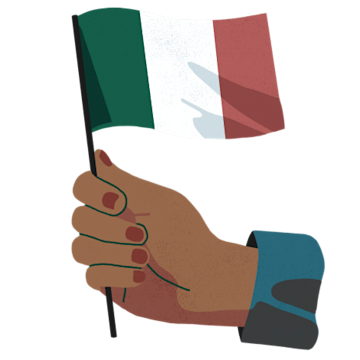
The Ultimate Guide to Moving to Milan: What Expats Need to Know
Milan attracts expats with its vibrant culture, economic opportunities, and cosmopolitan lifestyle. Here's what you need to know about relocating to this dynamic Italian city.

Hand holding Italian flag against sky
Housing Options in Milan
There are three main types of rental agreements:
- Freely negotiated (4+4): Four-year contracts with negotiable prices and automatic four-year renewal
- Regulated (3+2): Three-year contracts with association-set prices and two-year extension option
- Short-term: Maximum 18-month contracts ideal for students and business travelers
Property Purchase Costs
- Real estate agency commission: ~3%
- Land registration tax: 2% (first home), 9% (second home)
- Fixed mortgage tax: €50
- Fixed stamp duty: €50
- Notary fees: Variable
Best Neighborhoods for Expats
- Navigli: Historic canal district with vibrant nightlife
- Tortona: Creative hub with art galleries and design spaces
- Corso Sempione/Zona Fiera: Elegant residential area near Parco Sempione
- Isola: Trendy district combining tradition with modern architecture
- Porta Nuova/Porta Garibaldi: Modern business district ideal for professionals
- Porta Romana: Well-connected residential area with excellent amenities
- Città Studi/Lambrate: University district popular with students
Education
Top institutions include:
- Politecnico di Milano: Leading technical university
- University of Milan: Prestigious public university
- Bocconi University: Renowned for business education
- Catholic University of the Sacred Heart: Largest Catholic university in Europe
- NABA: Premier fine arts academy
Cultural Insights
Milan differs from other Italian cities in several ways:
- Strong work ethic and entrepreneurial spirit
- Merit-based professional environment
- International outlook
- Inclusive and diverse community
- Modern European lifestyle
Transportation is efficient with an extensive public network of metros, trams, and buses connecting all major areas.

Wise app circular logo with arrow

Smartphone with credit card payment
For successful integration, learning basic Italian is recommended, though English is widely used in business and tourism sectors. The city offers excellent healthcare services and maintains a high standard of living, though costs are among the highest in Italy.
Related Articles

Complete Guide: Living as an Expat in Hamburg, Germany
